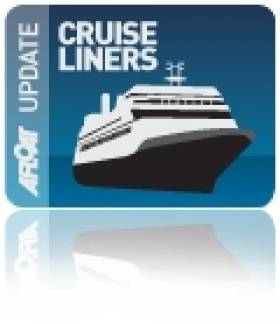Displaying items by tag: Atlantic Alliance
Port of Cork Signs Up to Atlantic Alliance Cruise Ship Destination Project
#atlanticalliance – The ATLANTIC ALLIANCE is a marketing project of 18 ports along Europe's West coast between Hamburg and Lisbon, including Britain and now an Irish port. The project highlights to cruise companies that there is in Europe an attractive alternative to the Mediterranean and Baltic. The multifaceted character and diversity of the Atlantic Alliance members offer a versatile portfolio of cruise content for the cruise companies.
Hamburg, 23rd of September 2013. The Atlantic Alliance is delighted to welcome the Port of Cork to the association. With the addition of Cork, the first Irish port to join the Alliance, the marketing project now covers in total eight countries. "The Alliance is proud to extend the region by aiming towards establishing a Euro-Atlantic destination on its own", says Nadine Palatz, Manager Atlantic Alliance.
Cork represents a key strategic member in terms of the implementation of the new EU sulphur directive which is due to come into effect in 2015. Within a North Sea context, this gives Cork an advantage for future cruise calls.
Port of Cork is on the South Coast of Ireland and makes the Euro-Atlantic picture more complete, as marketed by the Atlantic Alliance.
"Cork is home to some of Ireland's most famous tourist attractions such as Blarney Castle and Jameson Whiskey Distillery and also serves as a convenient gateway for visiting the many picturesque towns and sights of West Cork, Waterford and Killarney. We are delighted to be joining Atlantic Alliance in promoting Cork as a 'must see' destination on Ireland's south coast" commented Captain Michael McCarthy, Commercial Manager, Port of Cork Company.
The Port of Cork is home to Ireland's only dedicated cruise berth in Cobh and will have welcomed a total of 61 cruise vessels carrying over 100,000 passengers and crew by the end of the 2013 season. This is up from 35 calls in 2005 and the Port of Cork has ambitions to grow the number of cruise calls to 80 over the next five years and to increase turn-around calls and overnight stays.
All cruise vessels that call to Cork are given a very special welcome courtesy of Cork Cruise, providing tourist representatives who go on board each vessel, a display of traditional Irish dancing for passengers and a fond farewell on the quayside with a performance by a local brass band. These efforts do not go unnoticed by the passengers and the cruise lines and in 2011 the Port of Cork was awarded two Cruise Insight Awards for 'Best Shore Side Welcome' and 'Best Tour Guides'.





























































